Gas vs Electric Water Heater: Definitive Comparison
Choosing between gas and electric water heaters is a critical decision that can make a big impact on your home and wallet. In this article, we explore the advantages and disadvantages of both options, including energy efficiency and upfront costs, to help you make an informed decision. Follow our expert analysis to determine the ideal water heater type for your household.

How do electric water heaters work?
Your electric water heater heats up water in a storage tank with submerged heating elements, which are powered by your home's electrical system. The thermostat in your unit makes sure the water is at the desired temperature and switches off the heating elements when it's just right. Now you can enjoy hot water instantly, thanks to this innovative and efficient technology. Understanding how your electric water heater works will help you appreciate the convenience it brings to your daily life.

Benefits of electric water heaters
Electric water heaters offer many benefits over traditional gas-powered heaters:

Make a smart investment by choosing an electric water heater for your home. Not only are they cost-effective compared to gas-powered units, but they are user-friendly and require minimal maintenance.
Thanks to their energy efficiency, electric water heaters save you money on your utility bill by heating water without needing a flame.
They are much quieter than gas units, enhancing your overall living experience.
With versatile installation options, an electric water heater can be installed almost anywhere in your home and is perfect for homeowners looking for convenience and affordability.
Disadvantages of electric water heaters
Electric water heaters also have some drawbacks that should be considered:
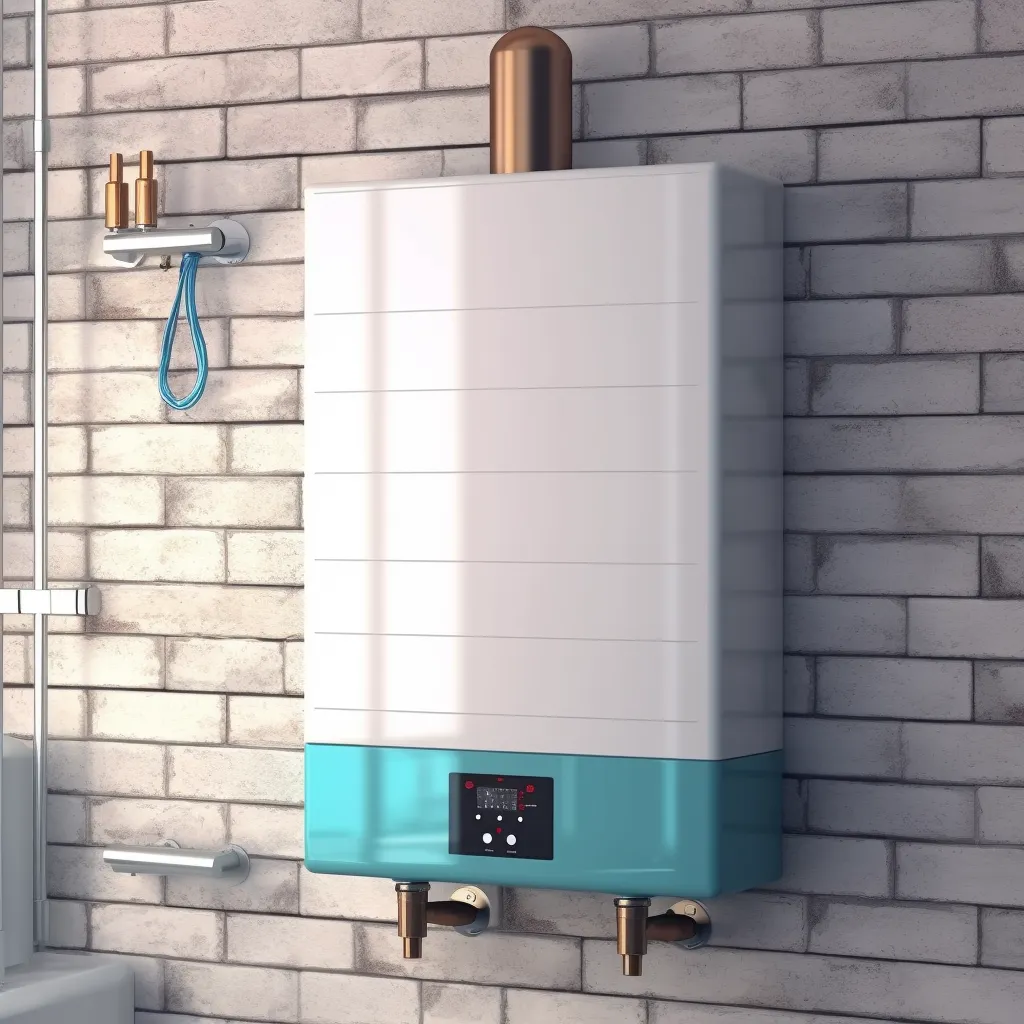
Heating water might take longer with electric water heaters, because they recover at a slower rate than gas models.
Despite being energy-efficient, electric units can still put a strain on your wallet due to higher upfront costs.
Comparatively, electric water heaters tend to have a shorter lifespan than their gas counterparts, requiring replacement sooner.
Electricity is a must for electric water heaters, leaving you without hot water during power outages.

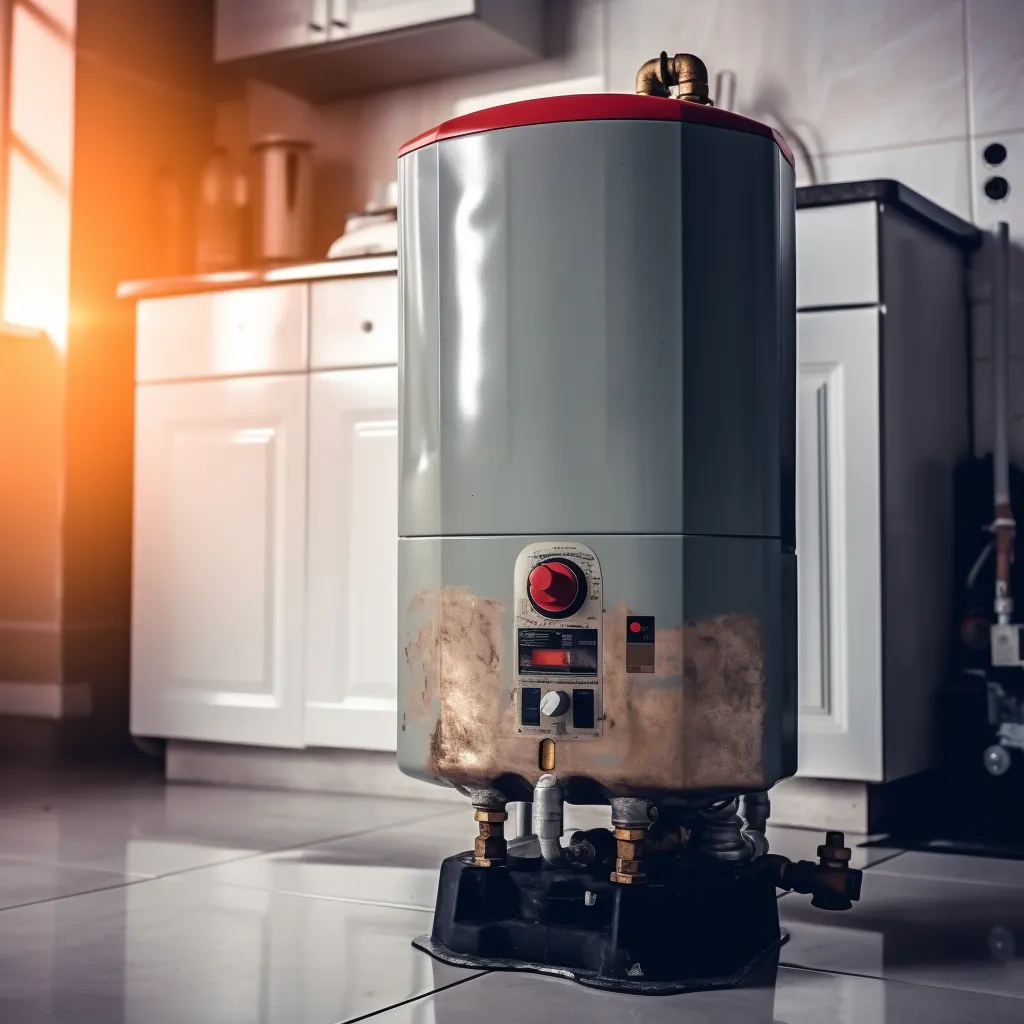
How do gas water heaters work?
Gas water heaters heat water through the ignition of a gas burner at the bottom of a large tank. Once heated, the water flows out of your tap, providing a steady supply of hot water through a cycle of rising hot water and the inflow of cold water. Experience the convenience of having hot water on demand with a gas water heater.
Benefits of gas water heaters
Gas water heaters are a popular choice for many households due to their benefits, which include:

Saving money on utility bills just got easier with gas water heaters.
They provide hot water faster than electric units.
Their longer lifespan ensures you won't have to replace them as often.
Enjoy the added benefit of easier installation and lower upfront costs for a truly cost-effective choice.

Drawbacks of gas water heaters?
Despite their many advantages, gas water heaters also have downsides:

Environmental impact: Natural gas combustion releases harmful pollutants into the air, contributing to air pollution as a fossil fuel.
Explosion hazards: Improper installation or use of gas water heaters could lead to explosions. Follow all recommended safety practices for a secure installation.
Maintenance expenses: Gas water heaters entail higher upkeep costs than electric models. Regular inspection and maintenance by a professional are recommended.
Extended installation time: Unlike electric units, gas water heaters require more time to install. Plan on several hours for proper installation.

Are electric water heaters energy-efficient?
Want to save energy? Consider these factors when choosing your electric water heater: unit size, insulation quality, and operating temperature. Despite their reputation, electric models are becoming more efficient and can compete with gas-powered heaters.

Are gas water heaters energy-efficient?
Save money and energy with gas-based water heaters. Rather than relying on electricity, they use natural gas to heat your water, making them more efficient. With proper maintenance like tank flushing and thermostat inspections, you can maximize cost savings and efficiency. Judge for yourself why gas-based water heaters are the better choice over their electric counterparts.
What does it cost to buy and install electric water heaters?
Upgrade your home's water heating system with an electric water heater. With a range of sizes and features to choose from, there's an option to suit every budget. For example, a 50-gallon model typically costs between $300 and $800. Installation, which involves scope of work and permits, would add an additional $300 to $500. Before installation, it's crucial to assess your home's plumbing and electrical wiring. Although there's an upfront cost, investing in an electric water heater pays off big in long-term energy savings.


What does it cost to buy and install gas water heaters?
Get the perfect gas water heater with sizes ranging from $500 to $1,500 - even high-end models that go up to $3,000! Don't forget to factor in installation charges based on location and plumbing. While the cost may seem steep at first, investing in a gas water heater saves you money in the long-term by optimizing energy efficiency. Plus, enjoy an uninterrupted supply of hot water - worth every penny!

What are the maintenance requirements of electric water heaters?
Get reliable hot water quickly and easily with an electric water heater. To keep it performing at its best, proper maintenance is critical. Check the temperature and pressure relief valve regularly to prevent overheating and explosions, and flush the tank every six months to a year to avoid sediment build-up that can decrease efficiency. Lastly, don't forget to inspect the heating elements and replace them when needed to ensure safe and efficient operation.

What are the maintenance requirements of gas water heaters?
Keep your gas water heater functioning safely and efficiently with regular maintenance. This includes annual tank flushing to prevent sediment build-up, periodic anode rod regulation to prevent rust, monitoring the burner and pilot assembly, conducting regular temperature and pressure relief valve tests, and checking for gas leaks. With proper upkeep, your gas water heater will supply hot water for years to come.

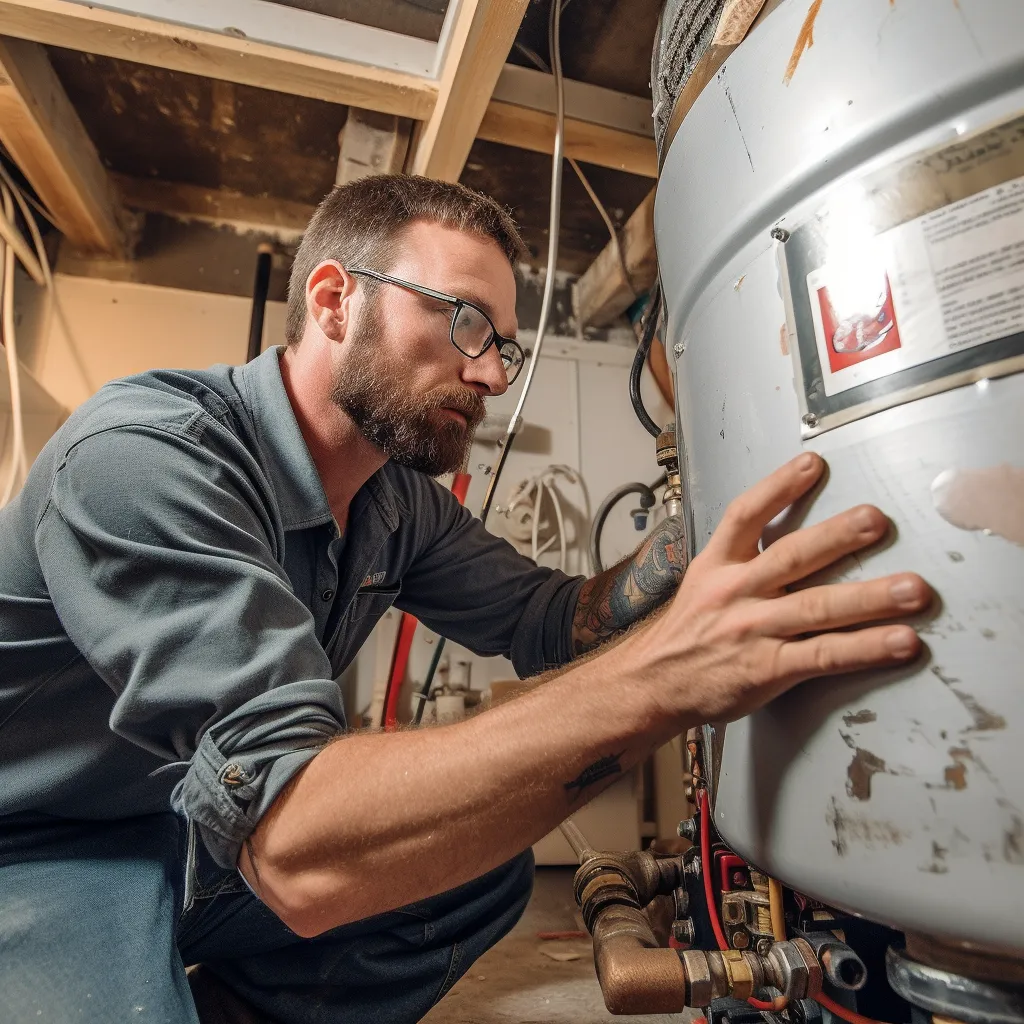
What are the safety considerations of electric water heaters?
Keep your family safe when heating your home's water with an electric water heater by following a few simple precautions. The danger of electrocution is very real if the heater isn't grounded or malfunctions. Moreover, fire hazards might occur if it overheats or is placed near flammable objects. Therefore, it is essential to follow the manufacturer's instructions and have a licensed professional install the heater. Stay ahead of potential accidents with these safety tips!
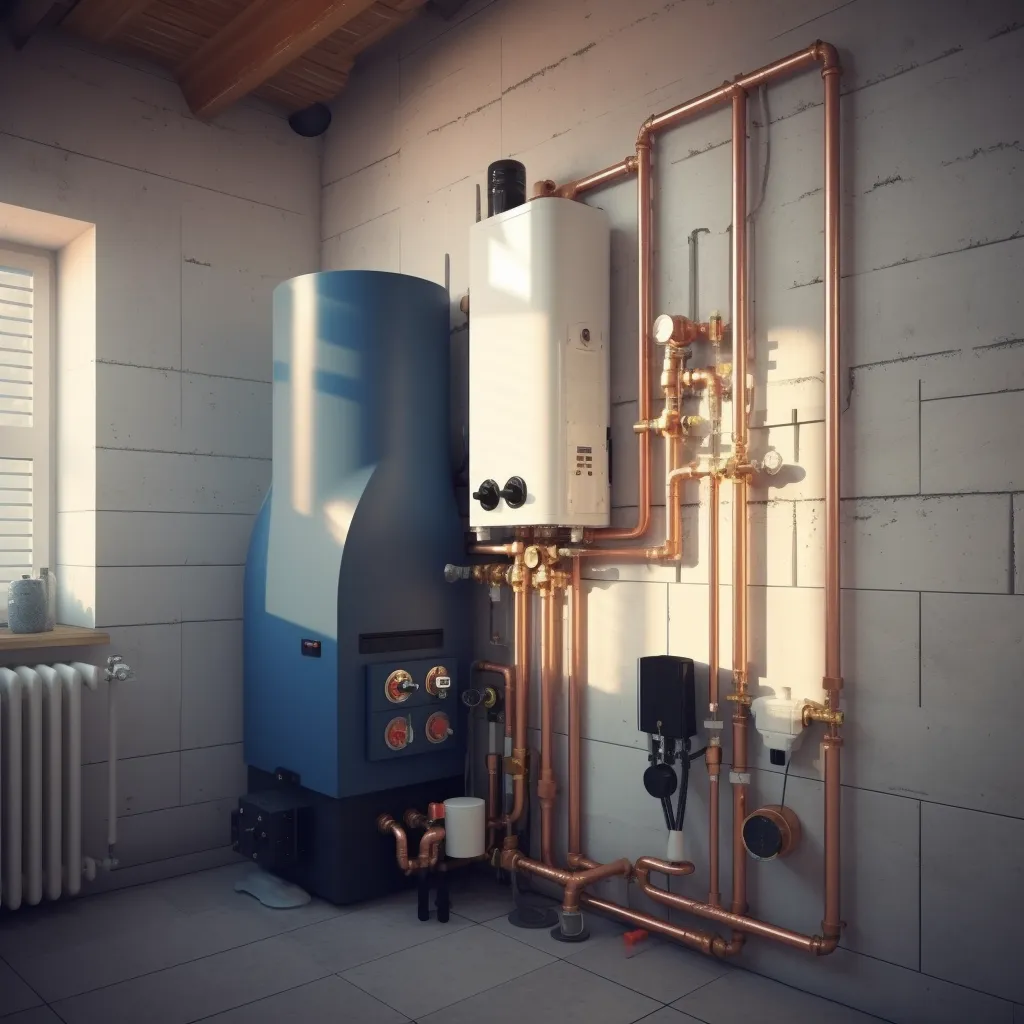
What are the safety considerations of gas water heaters?
Beware of the dangers of gas water heaters - they can release poisonous carbon monoxide if not ventilated properly or if there is a leak. Safeguard yourself by installing a carbon monoxide detector, getting regular maintenance checks and swift repairs, and keeping flammable items away from the heater. Stay safe and worry-free with these precautions.
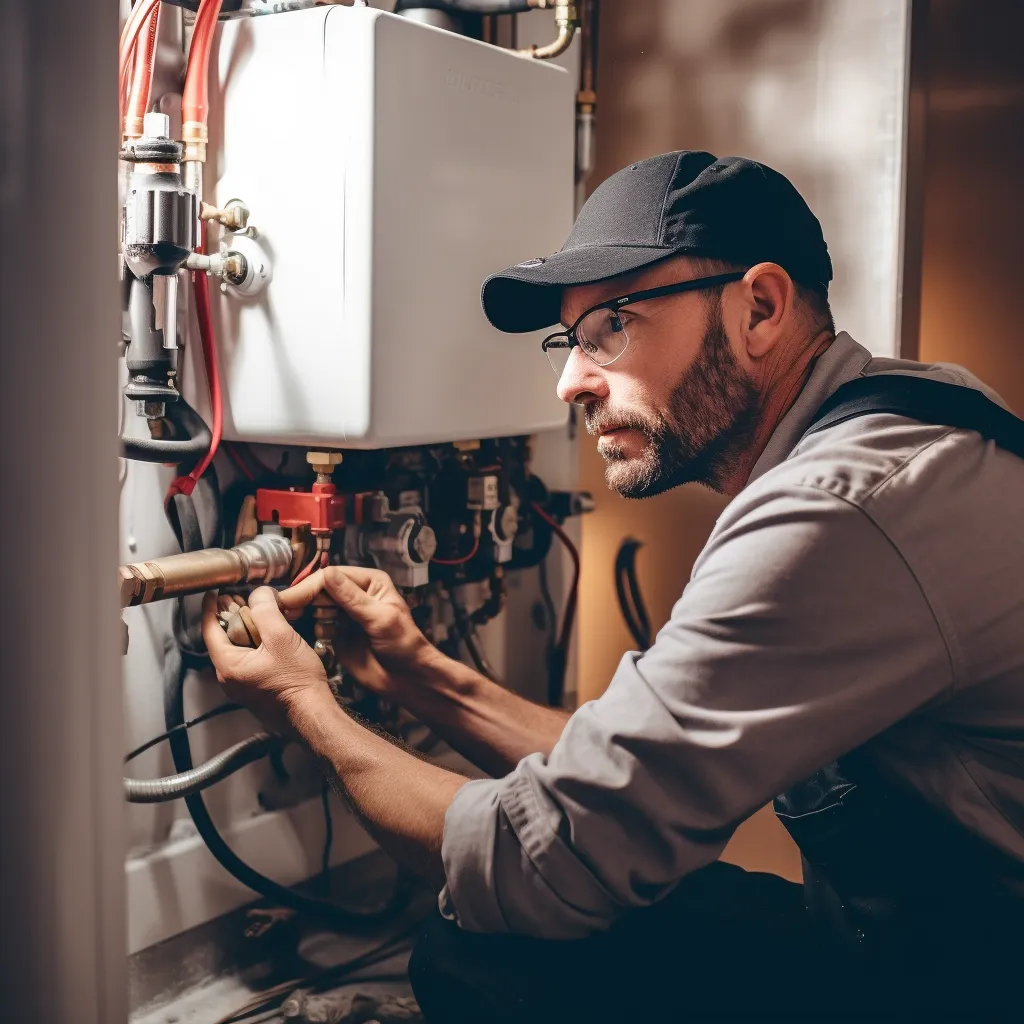
How to choose between electric vs gas water heater
Choosing a water heater can be overwhelming with options like electric or gas. To simplify your decision, take these factors into consideration:
Find the perfect water heater for your home by taking into account your water usage and living space.
Electric heaters are a cost-effective option, but gas heaters can save you money in the long haul.
Gas heaters run more efficiently and have lower operating costs.
While electric heaters require minimal maintenance, gas heaters require regular inspections due to their flammable properties.
Electric heaters are better for the environment by producing fewer emissions and reducing your carbon footprint.
The decision will come down to personal preference and what works best for your lifestyle and budget.

Why you should hire a licensed professional
to install your water heater
Don't take a gamble when it comes to installing or replacing your water heater. While DIY may seem like a cost-effective option, it can lead to costly and dangerous issues. Put your safety first and hire a licensed professional. Not only will they implement safety measures, but they also have the experience to identify and handle potential problems. Trust in the professionals to ensure the job is done right and your peace of mind is protected.


Be sure to do your research
Choosing the right water heater is a big decision that shouldn't be rushed. You need to weigh the pros and cons of electric versus gas models and factor in installation requirements and safety concerns. With careful planning, you can find the ideal water heater for your needs. But never forget that hiring a licensed pro to handle the installation is key to keeping you and your family safe.
Ready to Solve Your Plumbing Needs?
For reliable, expert plumbing services tailored to the needs of Lake Worth and its neighboring cities, look no further than D&S Plumbing Inc. We’re here for you 24/7, ensuring that your plumbing is always in top condition.
Call us today to schedule your service!
Business Hours: Monday - Sunday, 24 Hours
Phone Number: (561) 823-2535
Location: Central Lake Worth, FL, serving all surrounding areas.
Trust your local experts at D&S Plumbing Inc. for professional, timely, and efficient plumbing solutions.
GET IN FULL TOUCH
PHONE: (561) 823-2535
EMAIL:
david@waterheaterlakeworth.com
D&S Plumbing Inc
Lake Worth, FL 33462
